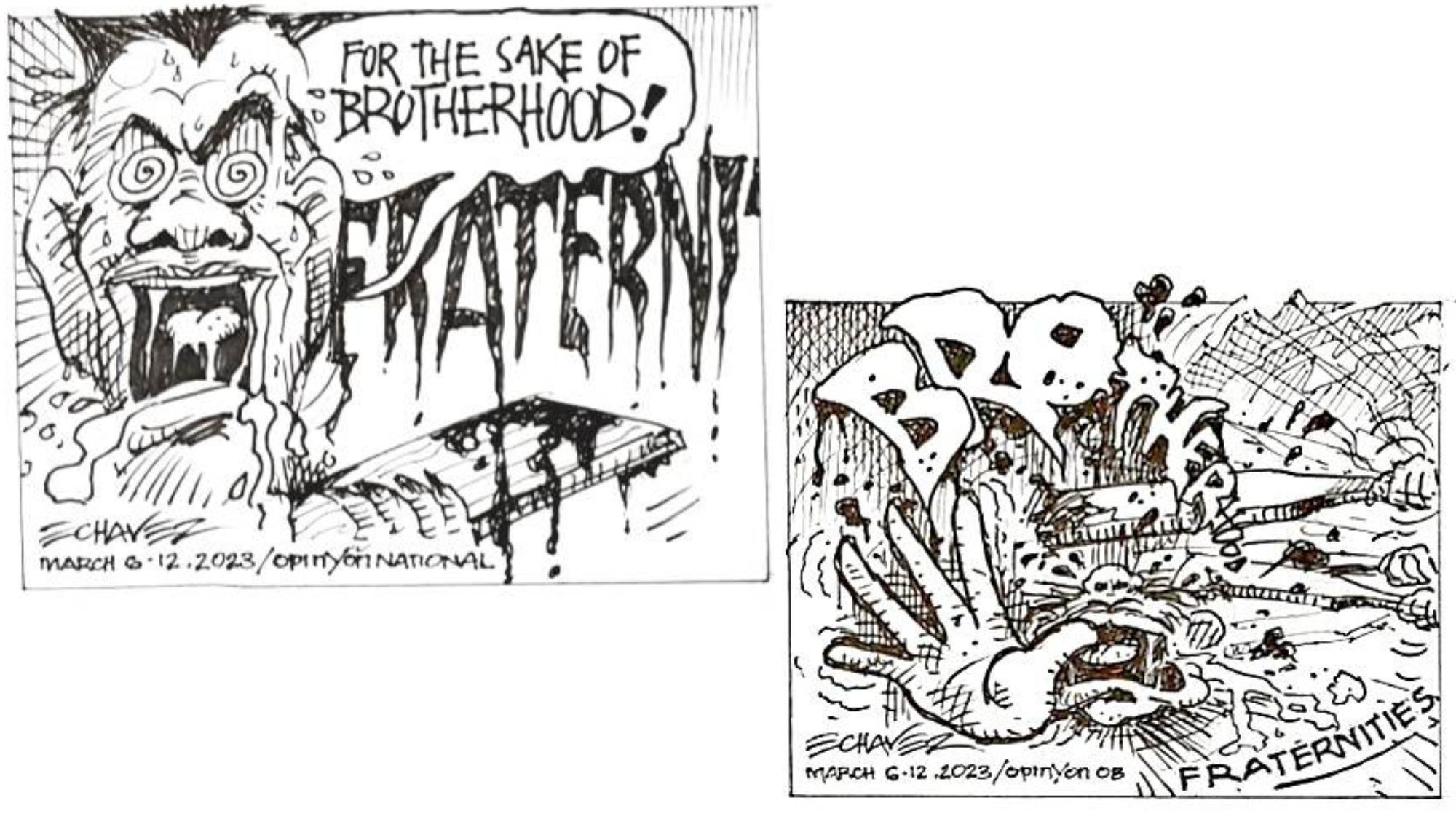Every so often we hear or read about young boys--- high school or college—being beaten to death or are left barely alive with heavy bruises and all from hazing.
And to think we have a 1995 Anti Hazing Act, officially designated as Republic Act no. 8049 that regulates hazing and other initiation rites in fraternities and sororities and provides penalties for physical harm and violence during such practices.
It was passed in response to the death of Leonardo Villa in 1991 from multiple injuries when he underwent hazing rites by the Aquila Legis, a fraternity of law students at the Ateneo de Manila University. Two decades later in 2012, the Supreme Court of the Philippines found five members of the fraternity guilty of reckless imprudence resulting in homicide. The Anti-Hazing Act couldn't be applied to the five since it was still yet to be enacted as law when Villa died.
By 2017, only one conviction had been made under this law, which was in 2015 when two Alpha Phi Omega members were found guilty for the death of Marlon Villanueva, a University of the Philippines Los Baños student, in 2006.
Bills amending the law had been passed in both chambers. In 2016, Majority leader Tito Sotto passed Senate Bill 223 imposing the maximum penalty for violators under the influence of alcohol and illegal drugs and if a non-resident or alumni fraternity member present during the hazing rites.
Both Senators Shewrin Gatchalian’s Senate Bill 199 and Bagong Henerasyon party-list representative Bernadette Herrera-Dy's House Bill 3467 ban all forms of hazing, only allowing initiation rites which do not inflict physical or psychological harm. Gatchalian's bill also proposes to impose stiffer penalties and fine to non-resident and intoxicated members involved in hazing, additional fine if hazing results to death, mutilation, rape, and sodomy, and requiring schools to conduct awareness campaign on hazing.
Of late, Herrera is proposing to declare those involved in hazing as persona non grata in communities, cities and towns, as she noted that most hazing are now done out of campuses. She even proposes a zero tolerance and one-strike policy against those abetting hazing.
Another view set forth by Rep. Alfredo Garbin Jr., of Ako Bicol Partylist is that hazing is a multifaceted “crime, justice, social welfare and mental health problem.” Thus it needs a concerted and effective action against the hazing plague that continues to spread among the Filipino youth and our communities nationwide.
Rightly so, hazing or the desire to hurt someone emanates from how an individual is treated at home. If he himself suffers from constant bullying and battering by his parents or neighbors, he would naturally want to inflict pain on others.
The problem is most parents, teachers and school administrations refuse to act or speak boldly against hazing because they fear for their lives. They fear of physical repercussions by a group of unwieldy individuals. Hazing is a result of a moral crisis besetting our country.
This is why even with all the laws, implementation would always be lacking because no courageous individual would enforce such draconian provisions of the law because they would think of whose sons or daughters of theirs or their relatives and friends they would be punishing for such crimes.
Garbin is even asking the police and the National Bureau of Investigation to investigate the death of the Adamson University engineering student, John Matthew Sallig, and even with such probes, nothing would come out of it.
He appealed to chiefs of LGUs to disband and crush the fraternities or groups responsible for John Matthew Salilig’s death and for the killing of other hazing victims. Abangan.

